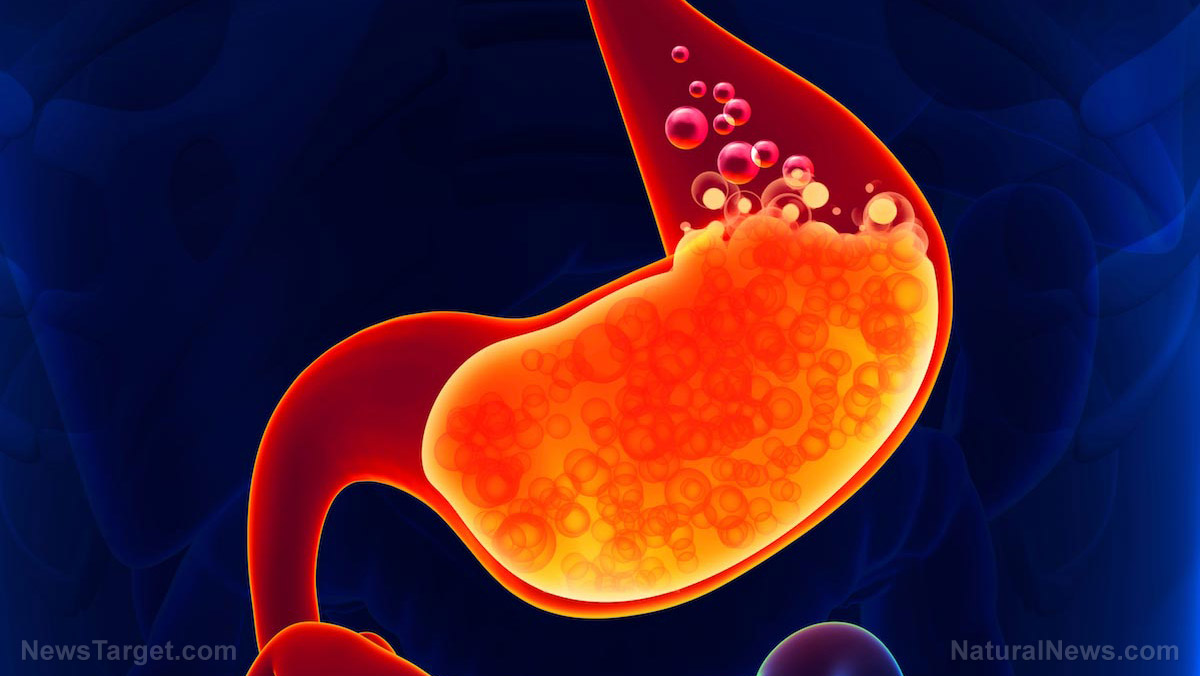OTC meds for acid reflux linked to depression – Proton Pump Inhibitors
04/03/2018 / By Lance D Johanson

One of the quickest ways to initiate depression physiologically is to destroy your intestinal microbiota and block your body’s ability to utilize nutrients. Medications for acid reflux do just that. Proton pump inhibitors (PPIs) are prescribed to reduce stomach acid, but in the process, they damage the colonization of your microbiota, severely altering the microbial environment in your gut and intestines. If commensal bacteria species are not allowed to thrive in your gut and intestines, then nutrients from food cannot be utilized, starving your cells and making way for more infections to take hold. As the diversity and magnitude of your microbiota is reduced, your brain is starved of the crucial elements needed for mood, memory, and overall cognitive function.
New research from Taipei Veterans General Hospital, published in the journal Psychotherapy and Psychosomatics, links PPI drugs and stomach acid reduction to major depression due to the depletion of the individual’s microbiome. The research took a closer look at 2,366 patients who developed major depressive disorder after being exposed to proton pump inhibitor drugs, comparing them to 9,464 subjects without major depressive disorder. Cumulative daily dosages of PPI drugs were associated with major depressive disorder.
PPIs destroy microbiota, weakening nutrient absorption and interfering with neurotransmitters
The depression increased dramatically when patients continued taking pantoprazole, lansoprazole and rabeprazole cumulatively. The link was less realized but still prevalent when patients continued using PPI drugs omeprazole and esomeprazole. Researchers believe that the reduction of stomach acid and the die-off of important microbes causes dysregulation of the brain-gut axis, ultimately interfering with neurotransmitter levels and starving the brain of what it needs to function normally.

The brain-gut axis is the biochemical signaling system that exists between the gastrointestinal (GI) tract and the central nervous system (CNS). Brain chemicals such as serotonin could be suppressed due to the depletion of commensal bacteria in the gut and intestines. PPI drugs have been prescribed for more than twenty years, but only recently have researchers linked their destruction of the microbiota as a precursor to major depression. The change in microbiota was observed precisely in the hypothalamic, pituitary, and adrenal axis.
The PPI link to depression is even more telling because the researchers found that PPIs decrease bioavailability of micronutrients like magnesium and vitamin B12, both needed for healthy brain function. The researchers wrote that PPI’s suppression of nutrients is also linked to bone fractures, higher incidences of pneumonia and dementia. Researchers had previously shown that PPI’s permit the colonization of infectious organisms, including Enterococcus, Streptococcus, Staphylococcus, and even E. coli. (For more studies reporting the side effects of popular medications, visit DangerousMedicine.com.)
Sources include:
Submit a correction >>
Tagged Under:
adrenal glands, brain health, commensal bacteria, depression, disease causes, gut health, gut-brain axis, hypothalamus, Magnesium, mental health, microbiota, mind body science, Neurotransmitters, pituitary glands, PPI drugs, stomach acid, vitamin B12
This article may contain statements that reflect the opinion of the author





















